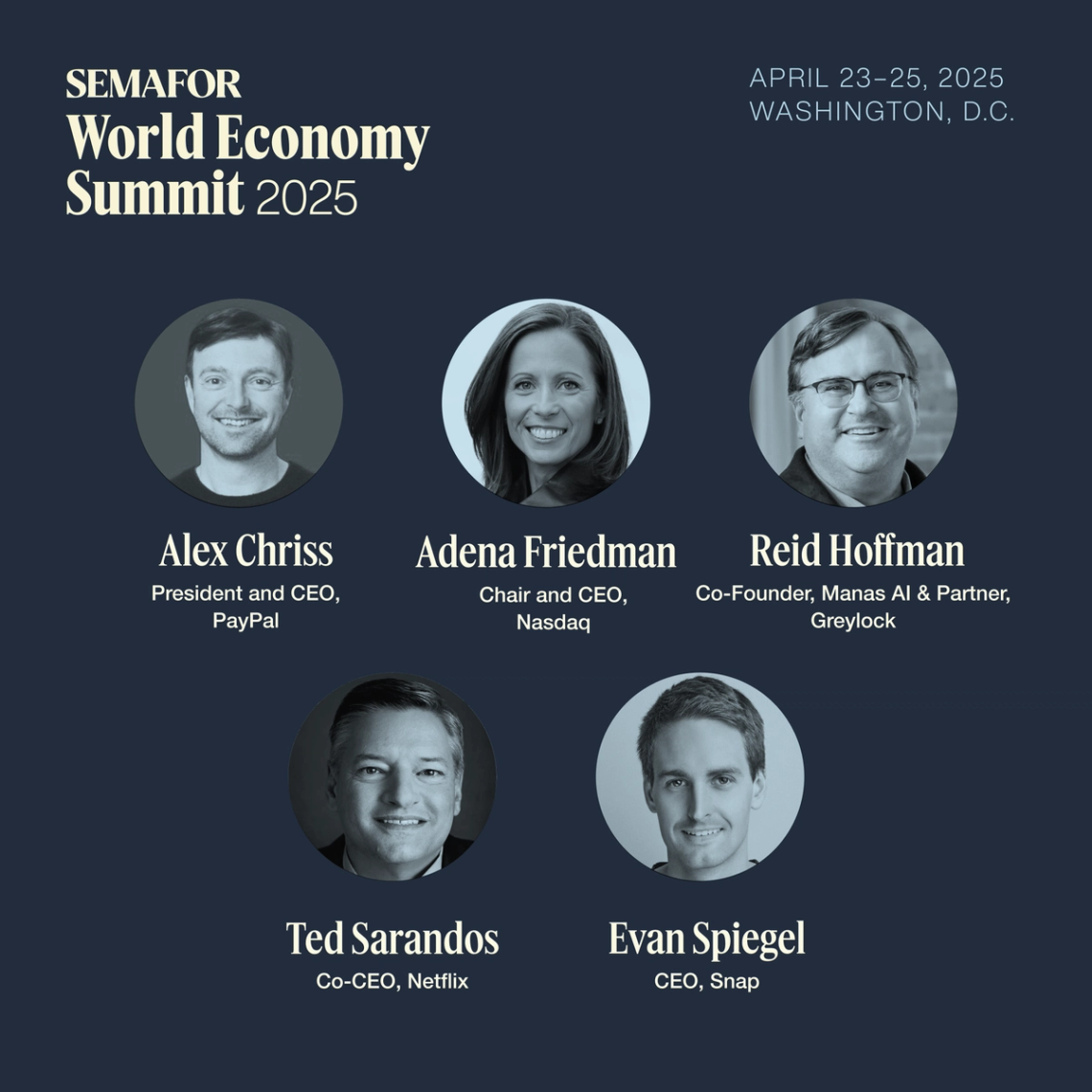 The World Economy Summit 2025 will bring together US Cabinet officials, global finance ministers, central bankers, and over 200 CEOs of the world’s largest companies. The three-day summit will take place April 23–25, 2025, in Washington, DC, and will be the first of its kind since the new US administration took office. Featuring on-the-record conversations with top executives such as Alex Chriss, President and CEO, Paypal; Adena Friedman, Chair and CEO, Nasdaq; Reid Hoffman, Co-Founder, Manas AI & Partner, Greylock; Ted Sarandos, Co-CEO, Netflix; and Evan Spiegel, CEO, Snap, the summit will advance dialogues that catalyze global growth and fortify resilience in an uncertain, shifting global economy. April 23-25 | Washington, DC | Learn More |